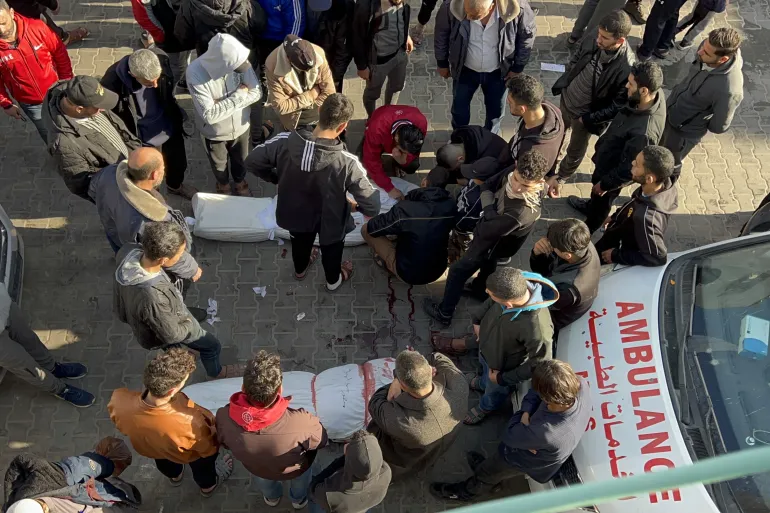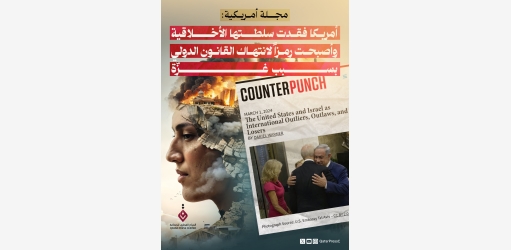This is a notification message.

Another story that has not been told, the one experienced by mothers, fathers and brothers outside the Gaza Strip, who taste both things. They are the ones grieving for their families inside, and they are the same people who are trapped in their memories and their past, suffering the pain of separation from their land and loved ones. Dr. Fawzia Bakri, the mother of the martyr Muhammad Nasman, could not control her tears when we asked her about her feelings as she was spending the holy month of Ramadan in Qatar, far from Gaza. Her voice was overcome by oppression, so she remained silent and was unable to answer, but she responded enthusiastically by saying, “Ramadan in Gaza is different from anywhere in the world. As his virtuous days approached, we would go to the central popular markets and stores to buy food, juices, meat, and all the supplies for the Ramadan Gazan dinner.” She added, "I cannot forget Al-Zawiya Market (the oldest market in Gaza), which is decorated with colorful Ramadan decorations, nor the lanterns that are hung everywhere, and people have been arriving since the morning, and the vendors on the sidewalks, and the 'stalls' filled with goods, gifts, and new clothes." The mother of the martyr Muhammad Nisman says that she lives a quiet life in Qatar. She left Gaza 3 days before the war, and with the beginning of the Israeli aggression, Fawzia lost a number of her relatives. A few days later, she learned that her son Muhammad, his wife, and his three children were martyred in an Israeli bombing of his house in Gaza. Fawzia confirms that The light of life went out inside her after the separation of her loved ones. From her voice, it was clear that Fawzia had lost passion for everything, and even Ramadan rituals no longer had any flavor in her life. She said, “It seems that I will not feel the joy of Ramadan and the joy of Eid until I die... So how can I be happy when my grandchildren’s Zionist missiles have broken their bones and their skulls under the rubble? How can I be happy when my grandchildren have had their bones and skulls broken by Zionist missiles under the rubble? And my people in Gaza are being slaughtered in front of the world.” Musaab Samir, a photojournalist from Gaza who lives in Qatar, believes that the joy of the arrival of Ramadan will remain on hold until the distress is relieved from his family and loved ones in Gaza. “We cannot rejoice in the arrival of Ramadan. We have martyrs and wounded. Our hearts burn for them while they are far away,” he expressed his hope. Ramadan will not end unless the war is over and Gaza has won. Musab explains that most of his relatives in Gaza now cook food on the fire of a wood stove that they find after trouble, and there are no cooking utensils. Everything is expensive. “The people of Gaza are not in the mood for Ramadan rituals like previous years.” Regarding prices, Musab confirmed that they are rising like crazy, and the aid does not meet the needs of the population. The news he receives from his area in Khan Yunis says that the people are searching for flour but cannot find it, as well as sugar, rice, vegetables and fruits, and all the necessities of life are missing in the Gaza Strip. Farid Omar Al-Nawasrah says that the month of Ramadan this year will be his first in Qatar and outside Gaza, and this is what will make Ramadan difficult from a psychological and moral perspective, adding that he lives alone in Qatar, which ignites within him a longing for the gathering of family and friends at the Gaza Ramadan tables. Farid did not hide the feeling of pain he felt while he was in Qatar, while the people of Gaza inside were being bombed and killed day and night. He said, “Our people in Gaza will welcome Ramadan this year with their empty stomachs and naked bodies. Fasting for them will not be strenuous, as they have been accustomed to hunger for more than 5 months, and most of them eat one meal a day at best, which does not enrich them or satisfy their hunger.” Farid, who left Gaza two months after the war, said that when he was in the Gaza Strip, he reached a point where he almost died of hunger due to the lack of food and drink, and a piece of bread at that time was considered a precious treasure. “So what is the situation today, after 5 months? People in Gaza cannot find A drink of water, and they will spend the month of Ramadan praying for salvation and the end of the war.” In previous years, Farid described Ramadan in Gaza as a month of joy, goodness, and gathering with relatives and friends. The day before Ramadan, the streets and markets were filled with people, and everyone went to buy decorations and lanterns, while children everywhere expressed their joy at the arrival of the holy month. Farid says, “The mosques that used to gather worshipers for Tarawih prayers were demolished, and the children’s laughter fell silent, and many of them were buried under the rubble of the destroyed homes, and even the seashore, which used to bring families together to break their fast during the month of Ramadan to watch the sunset, was bombed, and the restaurants and cafes surrounding it were destroyed.. "Nothing remains the same in Gaza now." Source - Al Jazeera Net

أكّد الكاتب دانيال وارنر، أن...